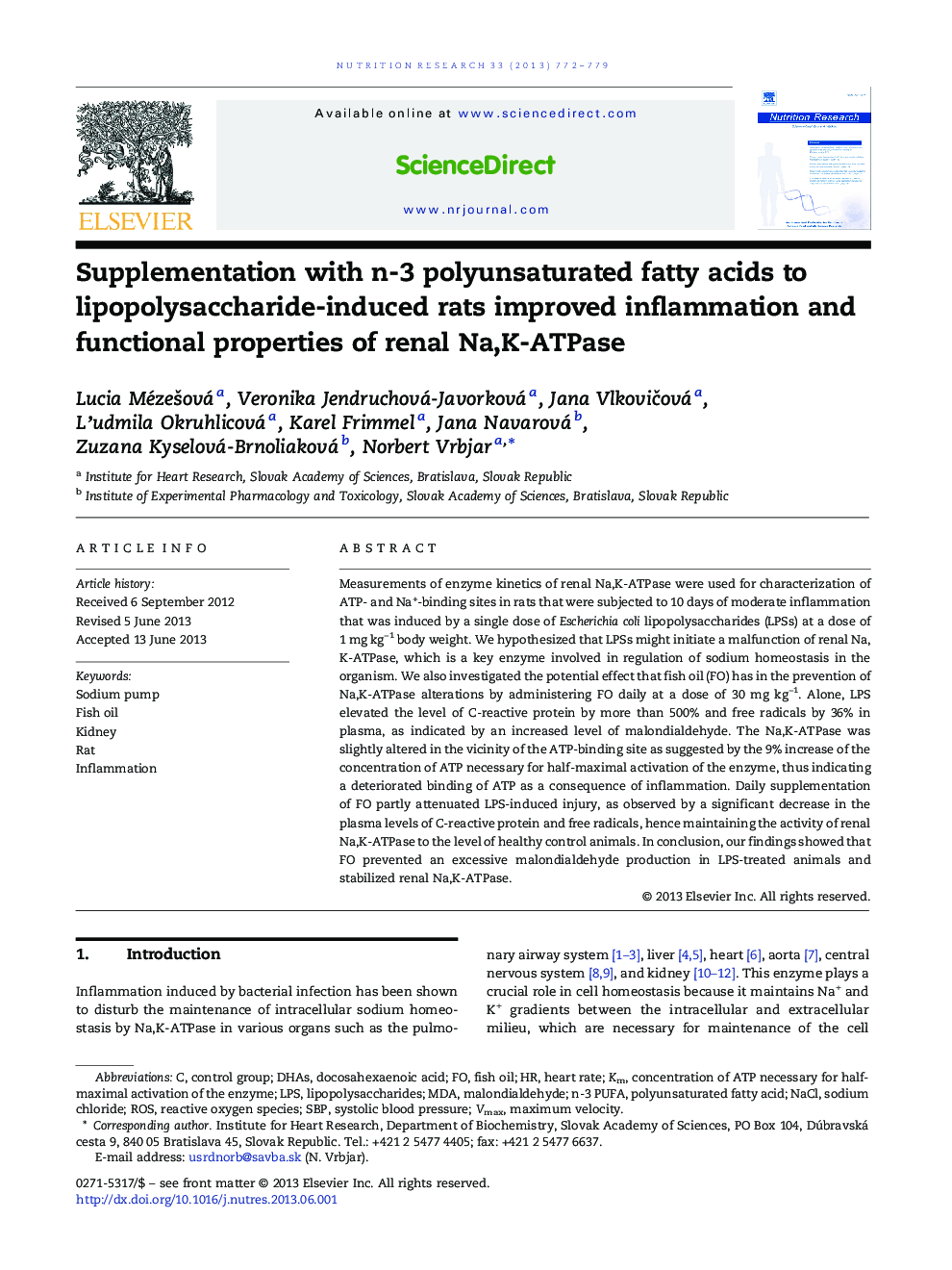| Article ID | Journal | Published Year | Pages | File Type |
|---|---|---|---|---|
| 2809077 | Nutrition Research | 2013 | 8 Pages |
Measurements of enzyme kinetics of renal Na,K-ATPase were used for characterization of ATP- and Na+-binding sites in rats that were subjected to 10 days of moderate inflammation that was induced by a single dose of Escherichia coli lipopolysaccharides (LPSs) at a dose of 1 mg kg−1 body weight. We hypothesized that LPSs might initiate a malfunction of renal Na,K-ATPase, which is a key enzyme involved in regulation of sodium homeostasis in the organism. We also investigated the potential effect that fish oil (FO) has in the prevention of Na,K-ATPase alterations by administering FO daily at a dose of 30 mg kg−1. Alone, LPS elevated the level of C-reactive protein by more than 500% and free radicals by 36% in plasma, as indicated by an increased level of malondialdehyde. The Na,K-ATPase was slightly altered in the vicinity of the ATP-binding site as suggested by the 9% increase of the concentration of ATP necessary for half-maximal activation of the enzyme, thus indicating a deteriorated binding of ATP as a consequence of inflammation. Daily supplementation of FO partly attenuated LPS-induced injury, as observed by a significant decrease in the plasma levels of C-reactive protein and free radicals, hence maintaining the activity of renal Na,K-ATPase to the level of healthy control animals. In conclusion, our findings showed that FO prevented an excessive malondialdehyde production in LPS-treated animals and stabilized renal Na,K-ATPase.
